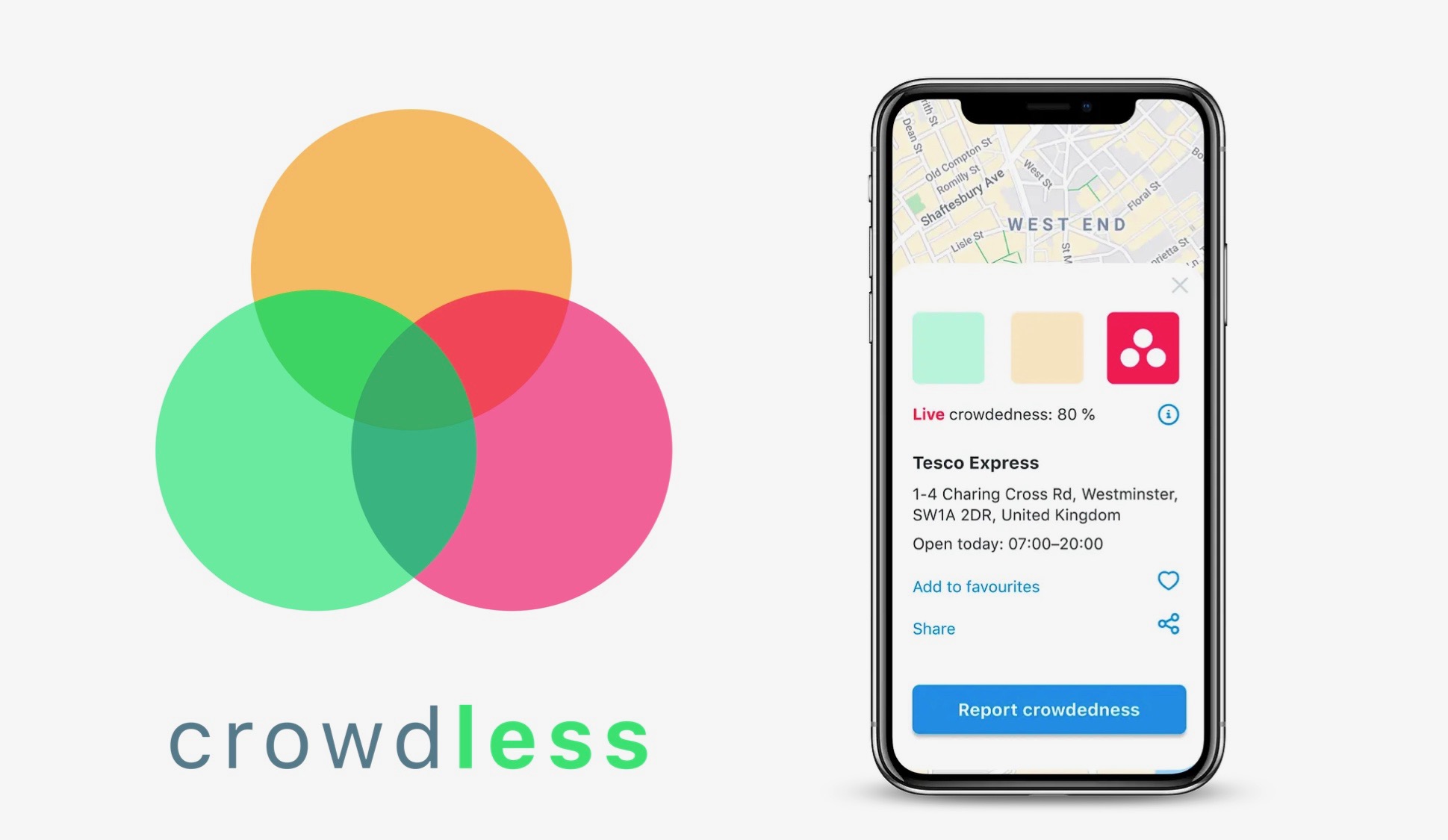The Oxford Foundry was established in 2017 by the University’s Said Business School as a space for developing a new generation of business ventures. The Foundry provides a springboard platform for start-up businesses founded by members of the University, with dedicated office space in central Oxford and support for early-stage ventures which show promise. One venture in the Foundry’s portfolio is Lanterne – a social enterprise led by Oxford DPhil student Alex Barnes and his colleagues. The start-up provides a technology which helps international organisations and workers to navigate safely through conflict zones.
In early April, the Foundry launched their COVID-19 action plan, involving the rapid scaling of start-ups which are responding to the pandemic. Unable to continue their overseas operations due to travel restrictions, Lanterne turned their attention to the crisis at home by repurposing their technology to aid the public in maintaining social distancing measures. They produced an app – Crowdless – which analyses GPS and GNSS data to let users know, in real-time, how busy local supermarkets are.
With social distancing measures expected to continue for many months, the Crowdless app will be an increasingly important technology
Lanterne’s story began before Alex’s time at Oxford, when he met one of his co-founders, Yohan Iddawela, at the London School of Economics (LSE). The young entrepreneurs quickly discovered a mutual interest for international development, and they travelled to Afghanistan a number of times to pursue their interest. Here, they witnessed the erratic dangers imposed on civilians living in conflict zones and recognised the severe lack of security information available to them. They came up with the idea of creating an app which would help people to avoid dangerous situations by analysing all sorts of information in real time. Lanterne was founded.
The pair understood that such a technology would require the gathering and processing of a vast amount of diverse information. According to Alex, “We knew that it would be a data-based company, so we set out looking for a data scientist as another co-founder.” They promptly recruited Sebastian Mueller, who is now the Chief Technology Officer at Lanterne, but who also previously studied and taught at LSE. The group devoted themselves to the mission of helping those living in conflict zones avoid dangerous situations.
The nascent enterprise started by creating an app which dynamically mapped dangerous areas in Colombia, a country that has been in the grips of civil war for almost 60 years. They had begun tailoring their service by conducting interviews and tests but, when COVID-19 hit the UK in March this year, Alex and his team realized that they were unable to proceed with their original plan.
But the team did not give up. They recognised that citizens in a place affected by a contagious virus would face similar difficulties to those in countries affected by dangerous conflict. They repurposed their machine learning technology to tackle the crisis at hand in the UK.
The app is very simple: you search your local area, identify nearby supermarkets and the app will tell you how busy they are using a traffic light system
As Alex explained, “We realised we couldn’t continue with our initial plan because there were no flights and everything was completely shut down. So Sebastian came up with an idea of creating an app to help people avoid crowds in supermarkets. We thought it was promising, so we worked on it and developed a few prototypes. Once we had witnessed how useful it was, we committed 100% to this project.”
Their research and development culminated in the Crowdless app, which has proved an incredibly useful tool for maintaining social distancing during the lockdown period. The app is very simple: you search your local area, identify nearby supermarkets and the app will tell you how busy they are using a traffic light system, with red being the most populated and green the least. From the real-time map interface, users will know what to expect before they travel to certain areas – whether they will be waiting a long time and if there is a large crowd.
Two types of data are used to generate the real-time map. First are the anonymous mobile signals from the network provider, and second is the information provided by the app users themselves.
“The blending of datasets is another unique feature of the app” Alex added. “Larger datasets can help train machine learning algorithms, which will be helpful in predicting how busy it might be in the future. If someone knows the likelihood of a place being busy in a few days’ time, they can plan their journey accordingly.”
With social distancing measures expected to continue for many months, and perhaps even into the New Year, the Crowdless app will be an increasingly important technology. As the country gradually unlocks, the team are open to expanding their app to cover different places, including public spaces, restaurants, beaches, pubs, pharmacies, post offices and more. But, in such a rapidly evolving situation, they will make their decisions based on the quality and usefulness of service they can provide at the time.
“Learn by doing. Start a business and try to make it grow. That is the quickest way to learn about entrepreneurship.”
Despite their innovative success, Alex recalls some things he wished he’d know before starting his company.
“Test all of your assumptions and validate how things work. This includes the technology you are developing, how users behave, your business model and costing. Independently validate all your assumptions robustly – this will ensure your business is headed in the right direction.
“The best way to learn about the world of start-ups is by engaging in start-up communities. Reading is quite good but, in contrast to traditional study, it is more about community learning.”
The Oxford Foundry, where Lanterne was launched, has this value of community learning at its heart. It provides a space for like-minded entrepreneurial students and alumni to meet, network, and learn from each other. Alex encourages students who are interested in start-ups to attend the events hosted by the Foundry and Saïd Business School, as they are fantastic resources freely available to all University members. He recognises that, ever since he first met with Yohan, collaboration, teamwork and community have been key to Lanterne’s success.
“In terms of your co-founders and team – they are practically a family for you,” he said. “You need to have people you can trust and get along with, people you respect and are willing to work with, and people with the same values and goals on what they want to achieve in business.
“I value people who are willing to try things and think creatively, and they would be very valuable co-founders. It is not necessarily that they have one specific skill that is very important for the business.”
For those struggling to find a way to start, Alex has some final advice: “Learn by doing. Start a business and try to make it grow. That is the quickest way to learn about entrepreneurship.”
Sources and further reading
For more information on The Oxford Foundry visit https://www.oxfordfoundry.ox.ac.uk
Learn more about the Crowdless app here
Title image by UnSplash





